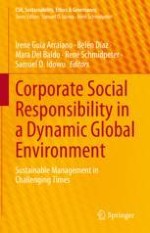This book highlights the latest research on responsible business and its practical implications for the economy, society, academia, and politics. It presents selected contributions from respected scholars and experts who have conducted international research on corporate social responsibility, sustainability, ethics, corporate governance, finance, and responsible investing.
The book examines the spreading and enhancement of CSR and sustainability at the micro, meso, and macro levels, especially in light of their increased relevance following the recent pandemic.
Taken together, the results of the empirically and theoretically based contributions offer a unique and multi-faceted perspective on current global trends and expected developments in this area. They cover a wide range of contexts and situations, helping readers expand their knowledge and drive effective change to tap their organizations’ full potential.
